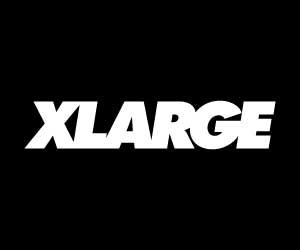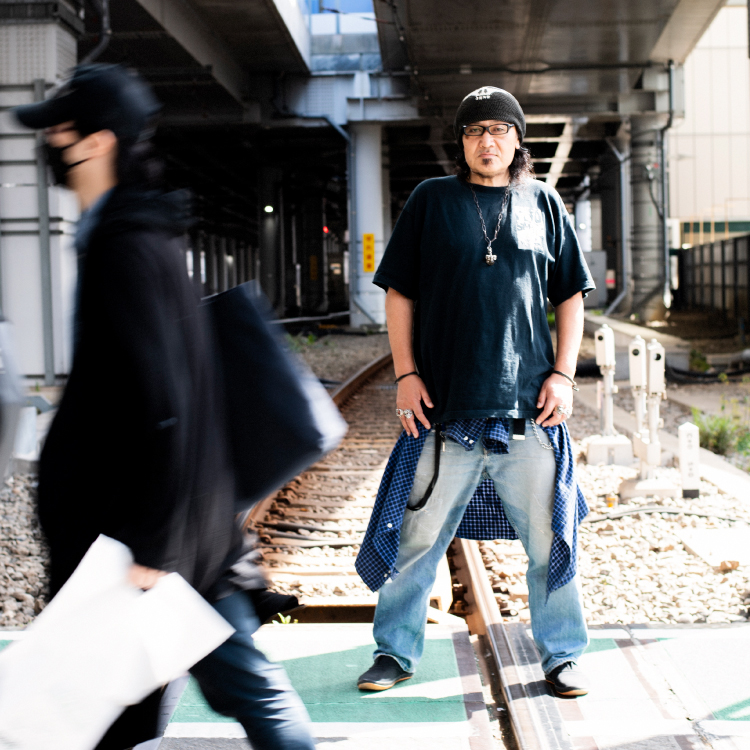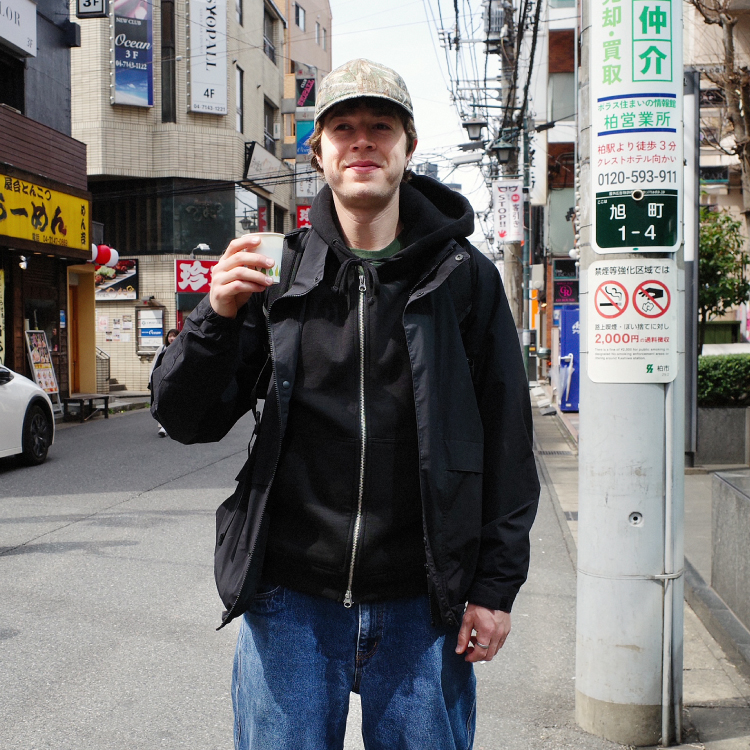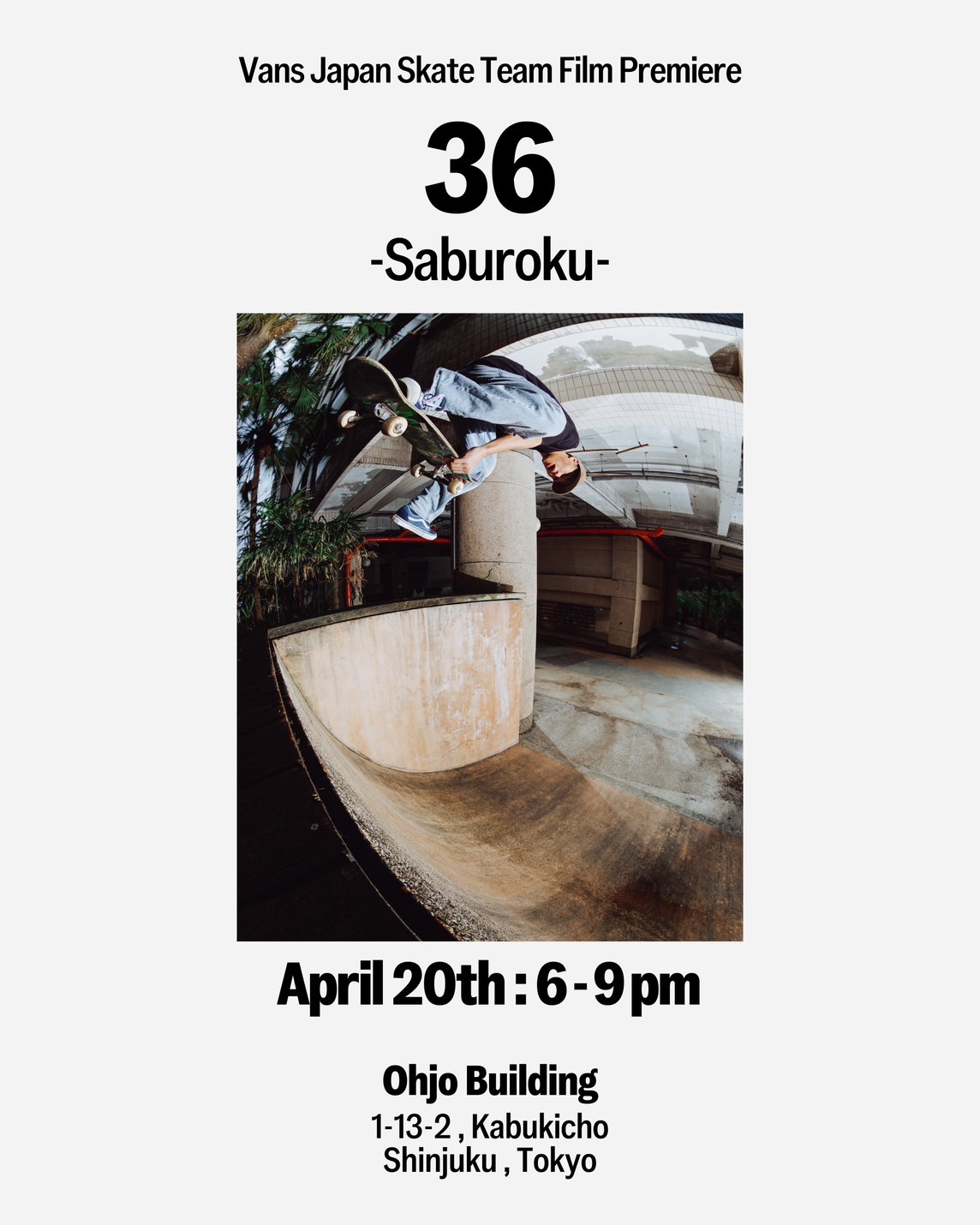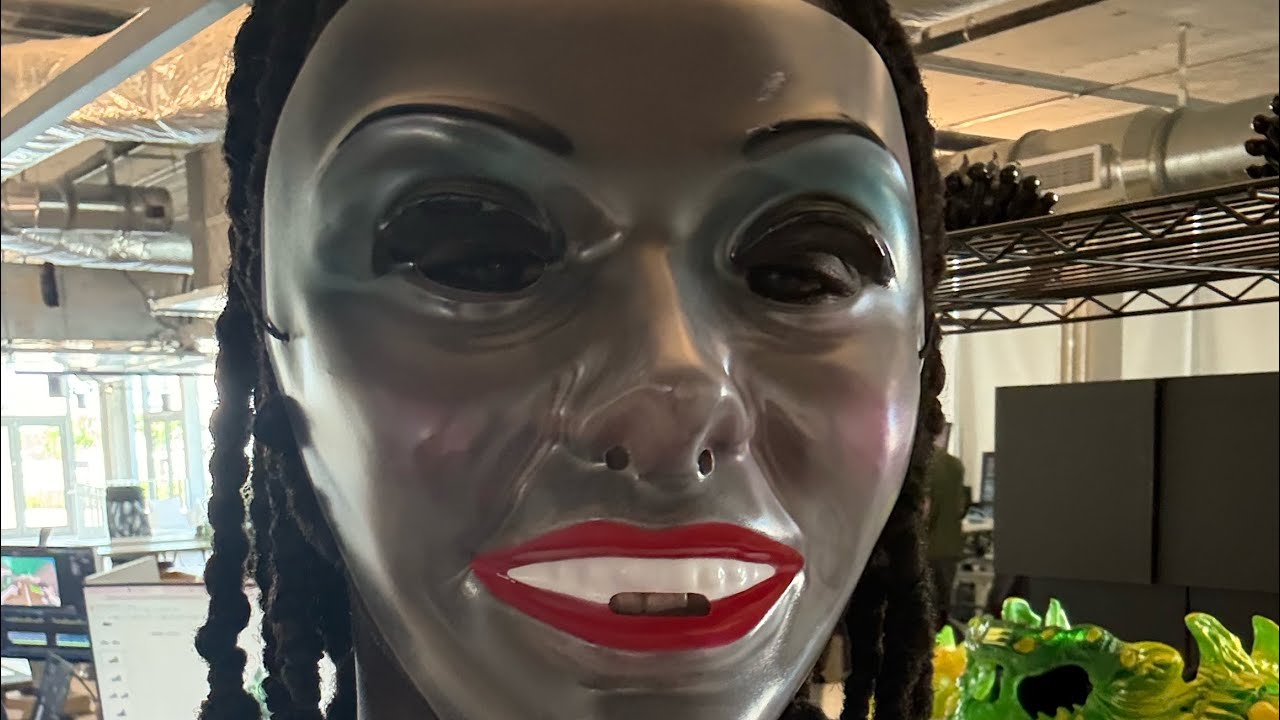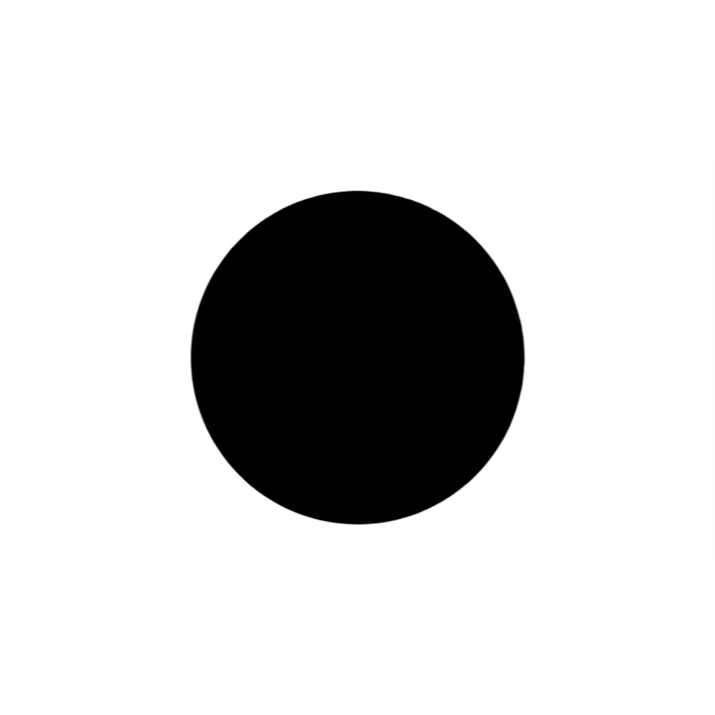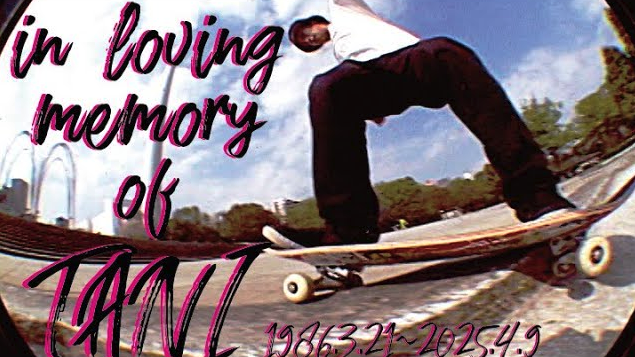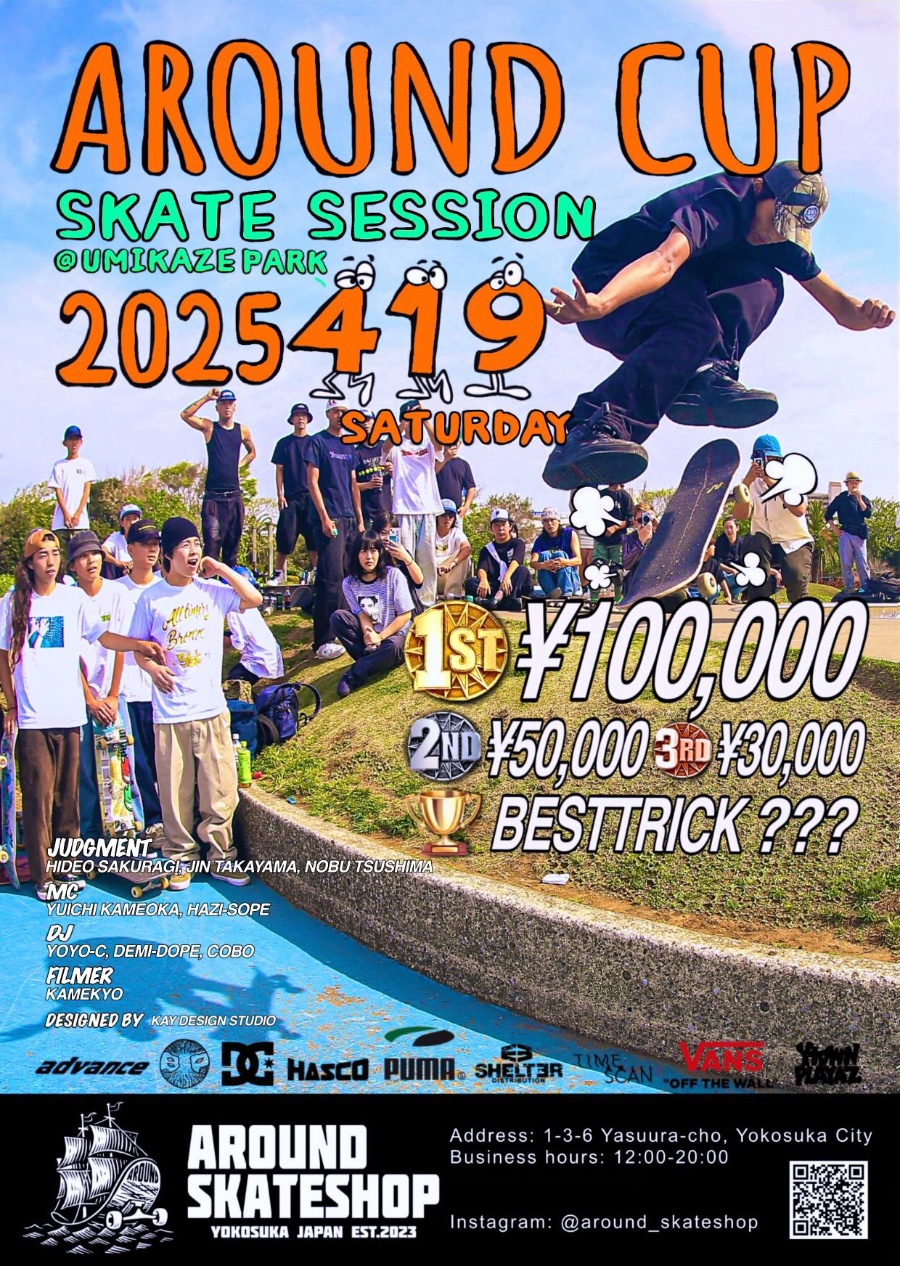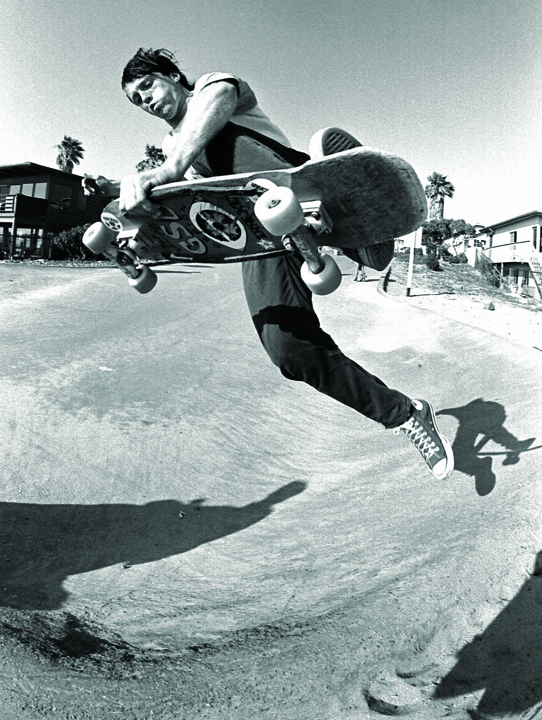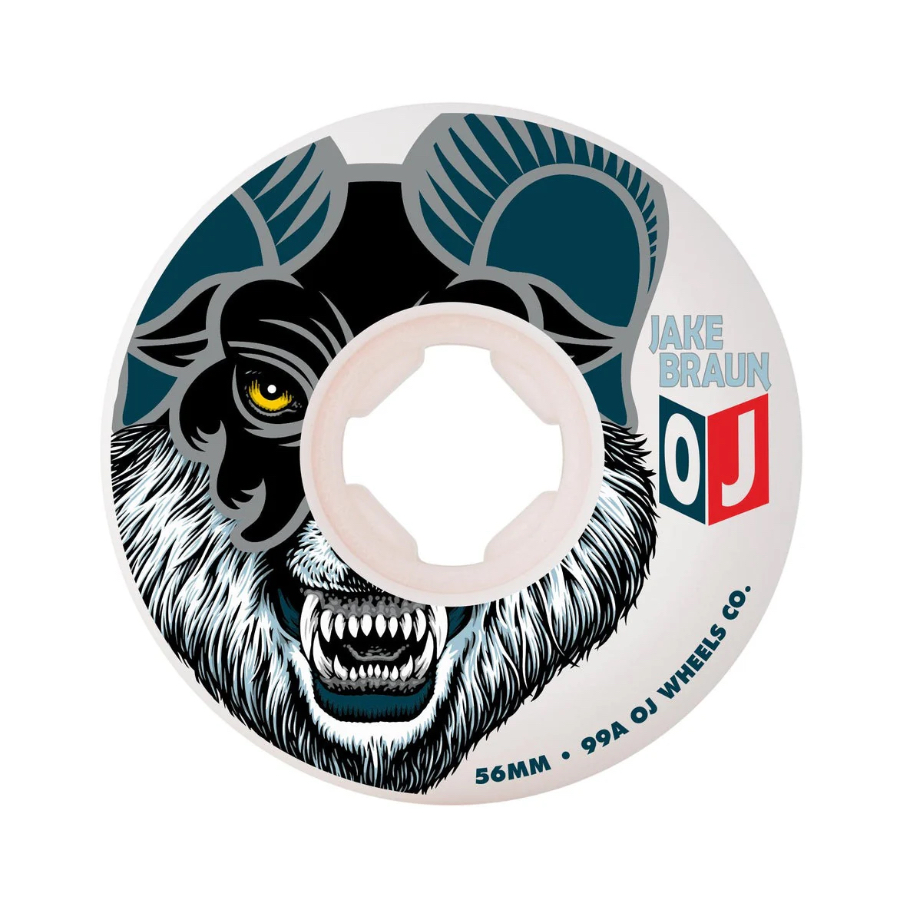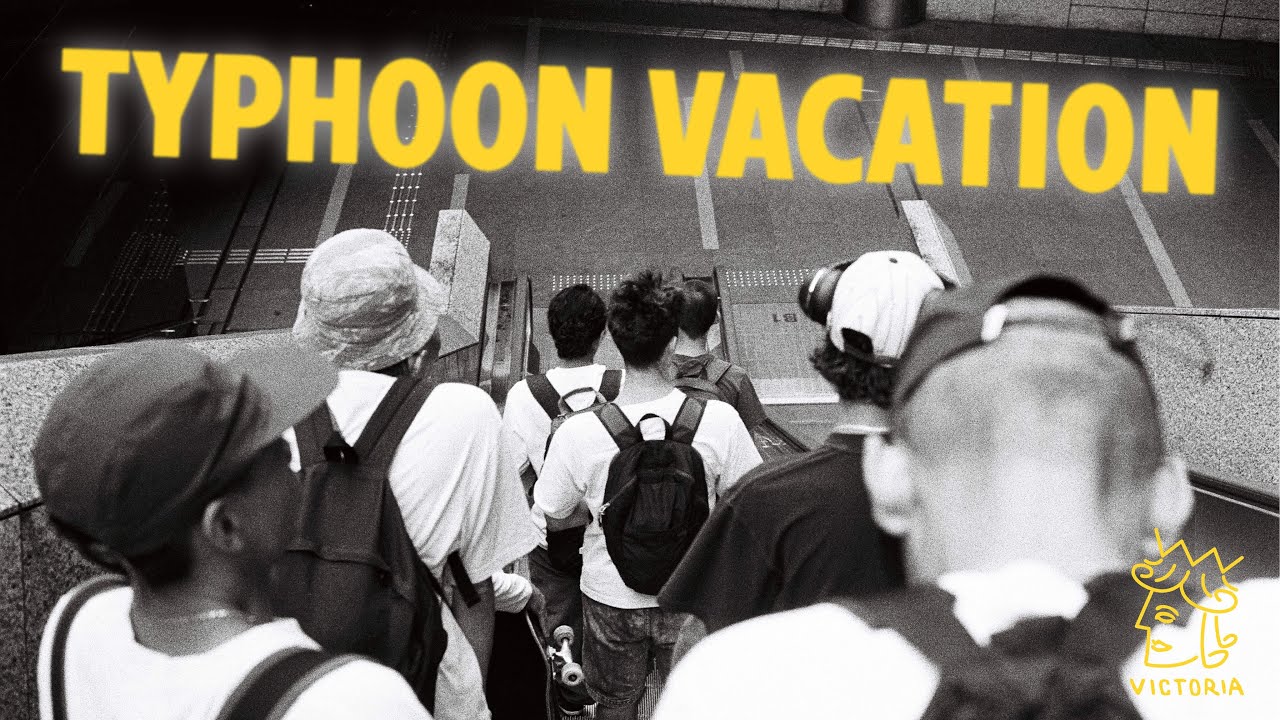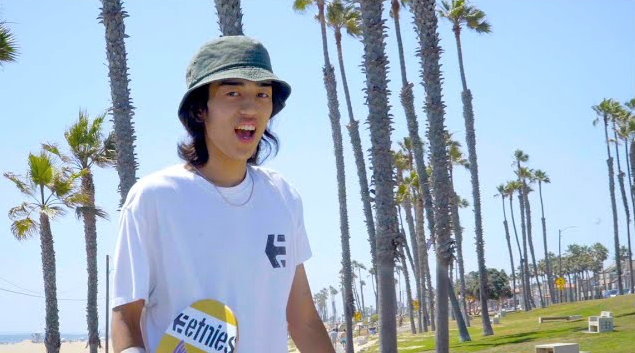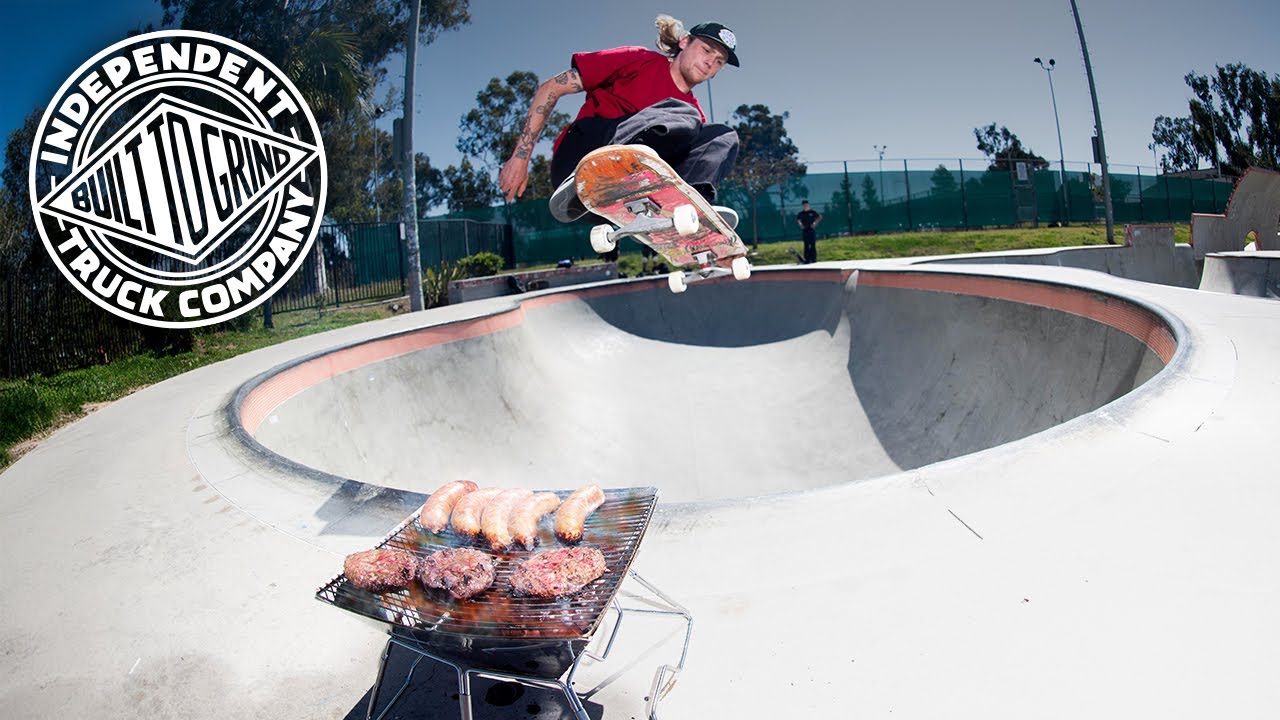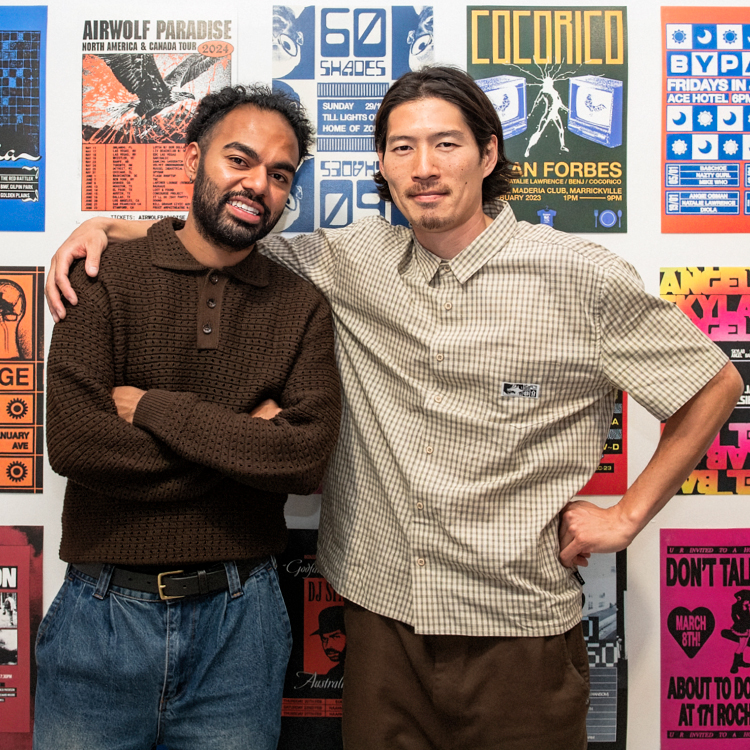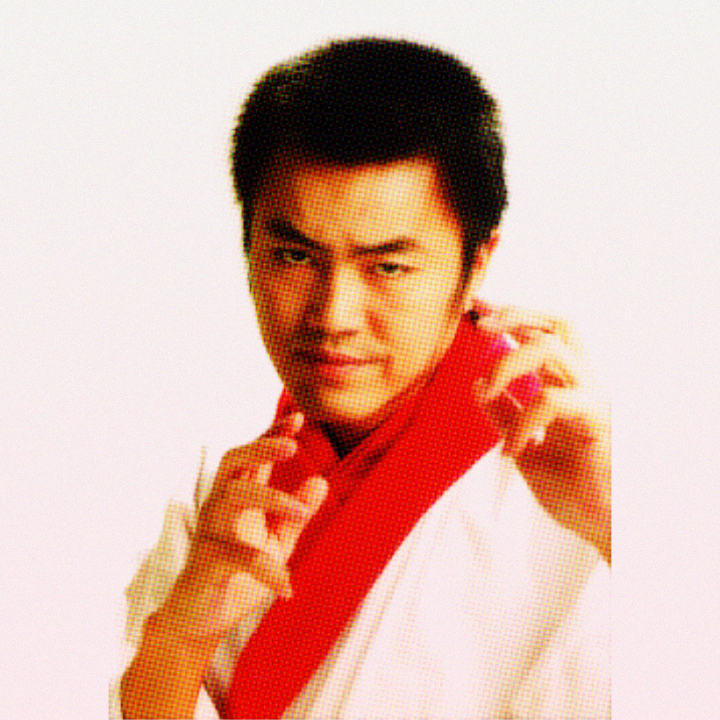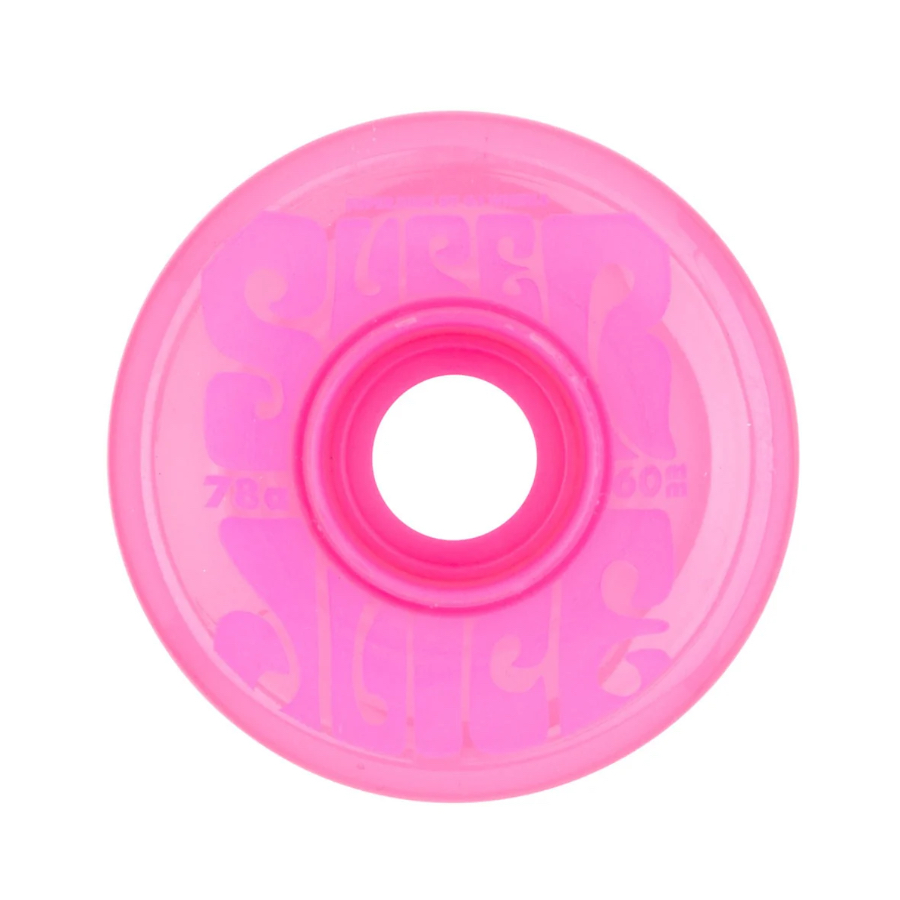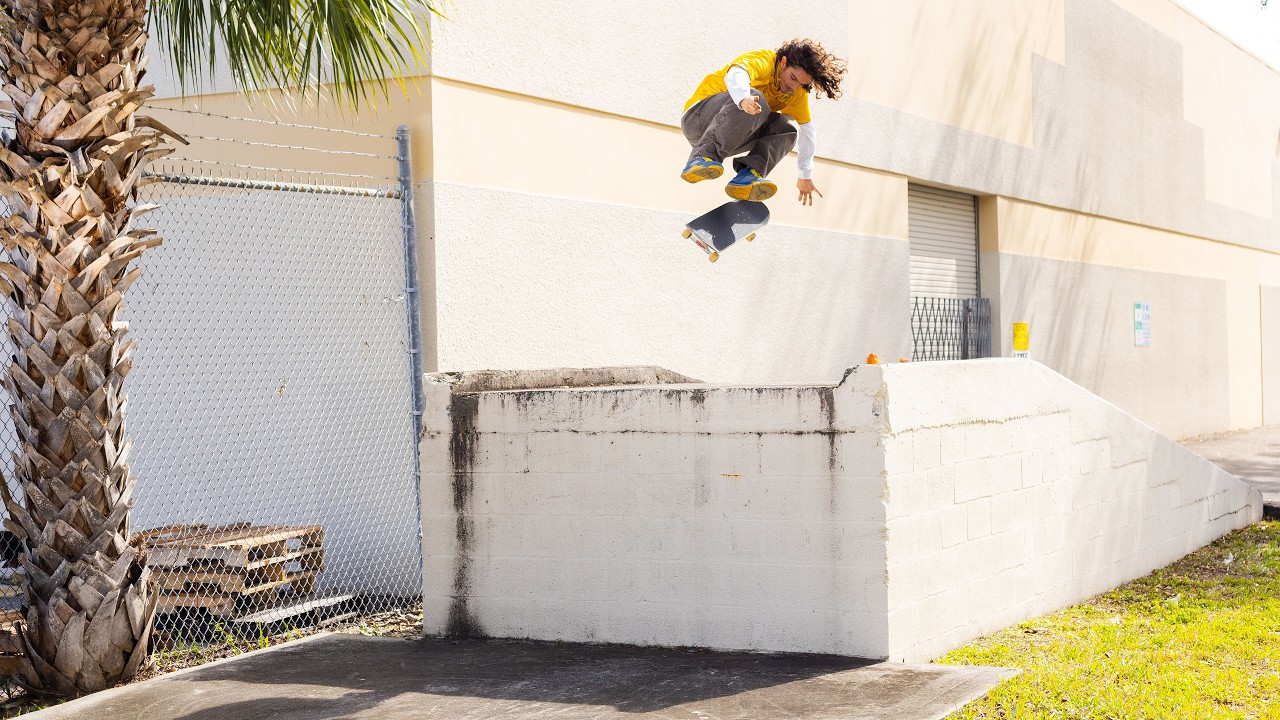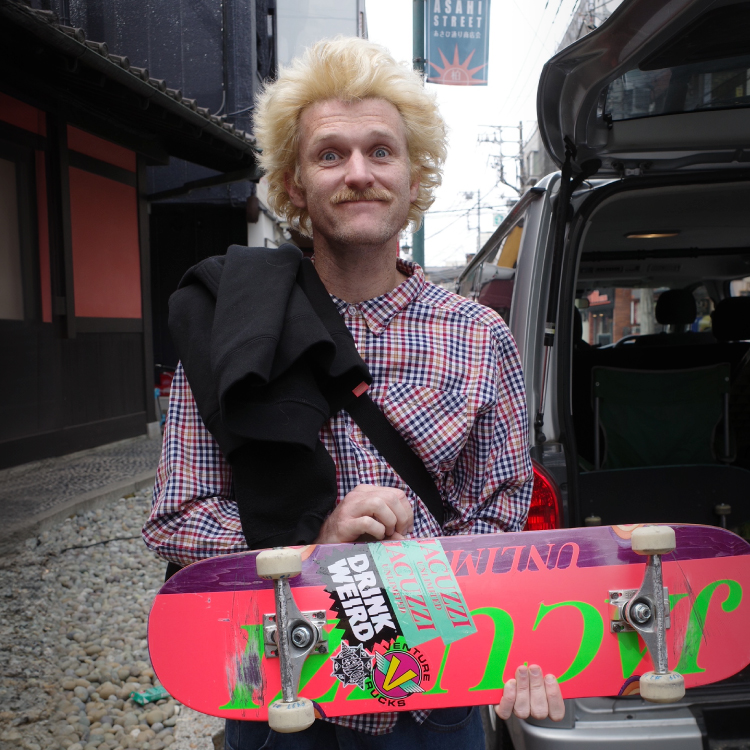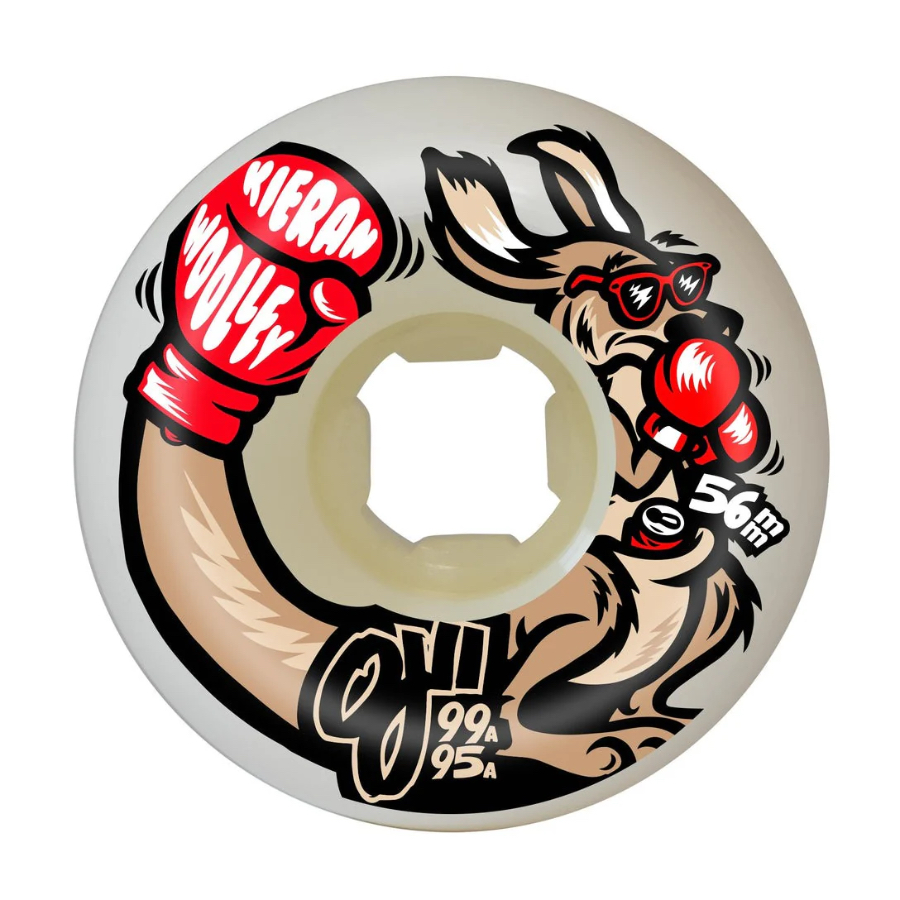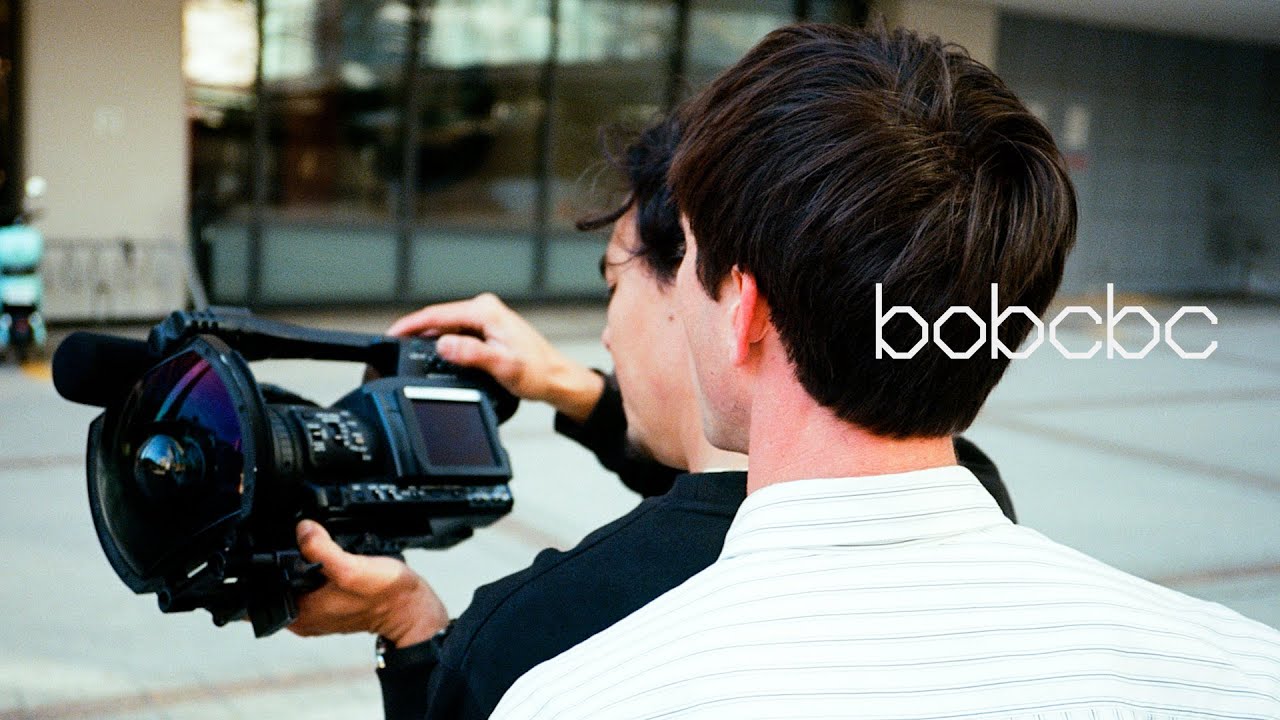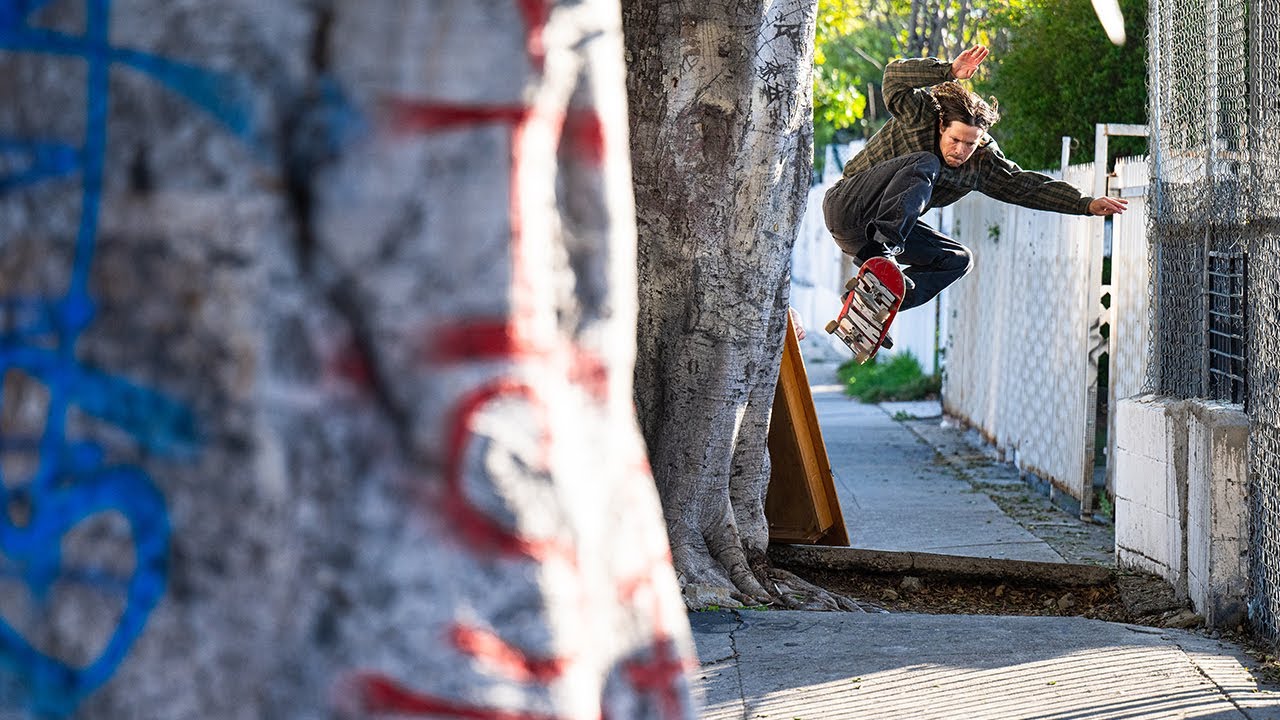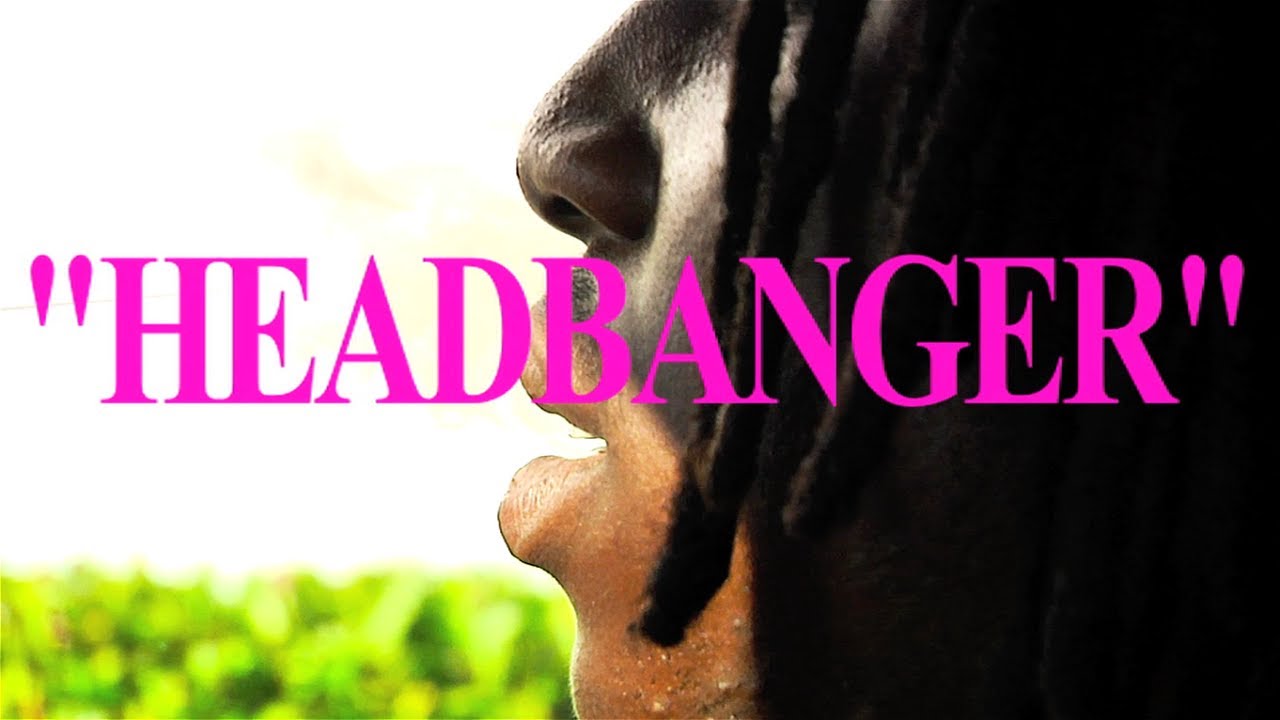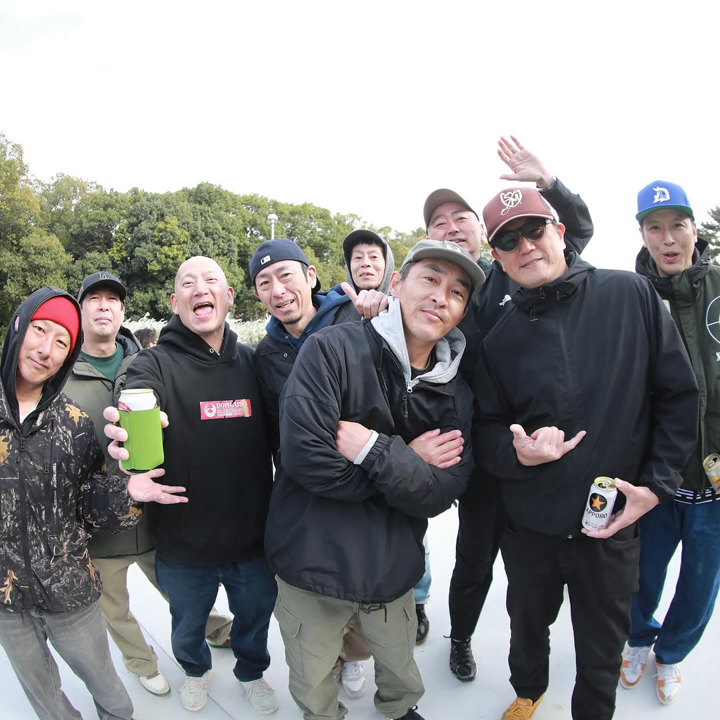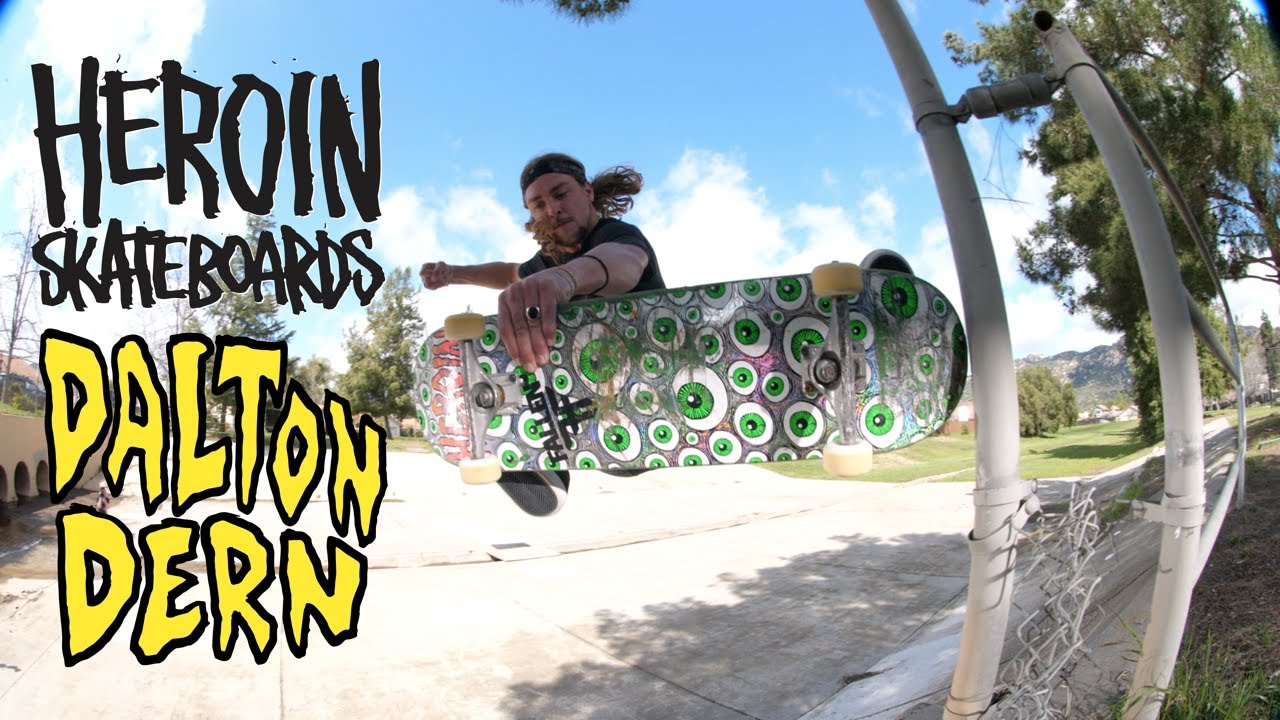The lead singer of the legendary American punk band MDC and the living proof of the 80's skate rock scene, Dave Dictor. The legend talks about the skate scene before FTC era and the present world that's about to fall apart.
──DAVE DICTOR (MDC) - ENGLISH
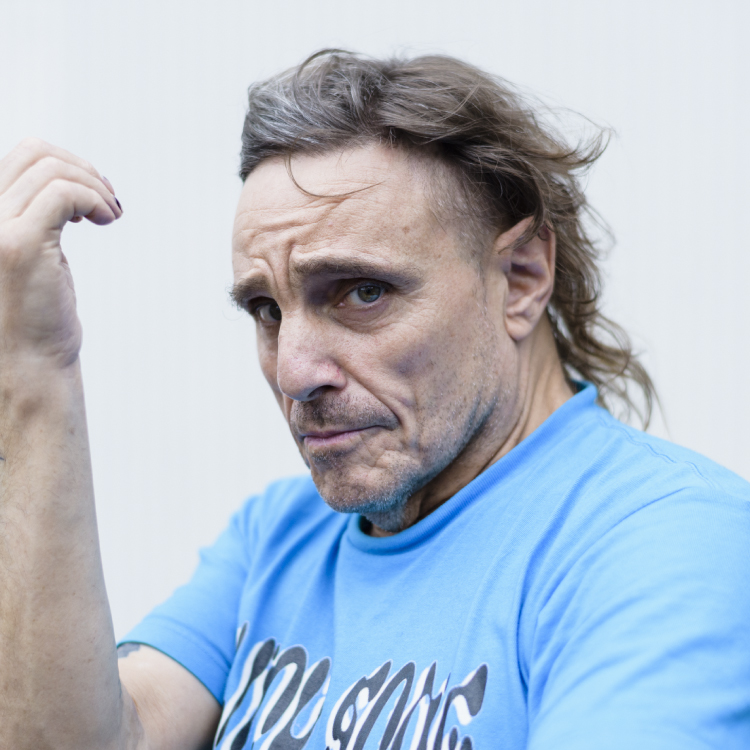
[ JAPANESE / ENGLISH ]
Interview_Hiroyuki Wakabayashi (Possessed Shoe.Co)
Structure and Words_Dai Yoshida
Photos_Yasuhiro Ohara
VHSMAG (V): This is your third tour in Japan and tonight's the last show. How was Japan?
Dave Dictor(D): Well, people are so sincere and friendly. I find it to be just very warm. Because I'll be complaining about the weather and everyone wants to get me an umbrella. I've got to realize, shut up, stop complaining. Japan has very deep traditions. So I see a lot of people that seem like, "I wish I could be like you and stick out." I think it's a frustrating thing when you have a very traditional society. People are programmed like, "I have to work for Suzuki my whole life. I worked 38 years, I tightened the screws..." I think it was easier for me to break out of that because my mother was a newspaper report for The Daily News. From when I was a little kid, she said be whatever you want to be. If you're gay, be gay. If you're Italian, be Italian. If you want to be a baseball player, be a baseball player. If you want to be a singer in a punk rock band, go for it. Be what you want to be. That's my message to people. Do what you want to do with your life, because you get a certain amount of years and then we all turn into dirt. It may not be what your mother wants, may not be what your society wants, may not be what grandma wants. Just go for what you want to be. Live your dreams, be who you are. Because we get only so much in our lives. I'm 60 years old, you know? Like I'm still trying to fight through stuff myself that got planted in my head. My grandmother was like be like this, don't be like that. I have to work everyday to think, what's stopping me from being who I truly am? Sometimes I hold back. I'm very lucky that punk rock came around at the right time for me. I was the first person in my family to go to university, and I graduated. And I started a punk rock band.
V: No one in your family said no?
D: Live my life like I want. I want to be a rock and roll person, I want to talk about issues that affect us all, whether it's "Radioactive Chocolate", whether it's the "Multi Death Corporation," you know what our society is built on. "No Trump, no KKK, no fascist USA." That's what I want to do. They thought I was going to be a doctor or something, something a little more respectable. I'm sorry. I'm not more respectable for you, but this is who I really am. To my mom's credit she said, "Be the best punk rocker you can be." I love her for that. She's been dead 15 years now, she died kind of young. I miss her. I don't want to work at a bank for 20 years and then when I'm 55 years old go, "All right, now it's my life, now what do I want to do?" I'm tired, I'm old, I play shuffle board you know or I got to the gambling casino in Las Vegas. That's what a lot of old people in America do, they give their life away for 30, 40 years and then they've got 10 or 20 at the end and they think they do what they want to do. They're so tired they lay around Miami Beach or somewhere in some retirement community. I wanted to live my full, touch people, I want to break down the walls that separate us. If I'm free... I'm very lucky. I was in the right time at the right place culturally where I started my band. You know, I started listening to punk rock. It was in '76, '77, '78. I played in a couple bands. Then I got in one in 1979 and it kind of morphed into, it was The Rejects that kind of morphed into the Stains and that morphed into Millions of Dead Cops.
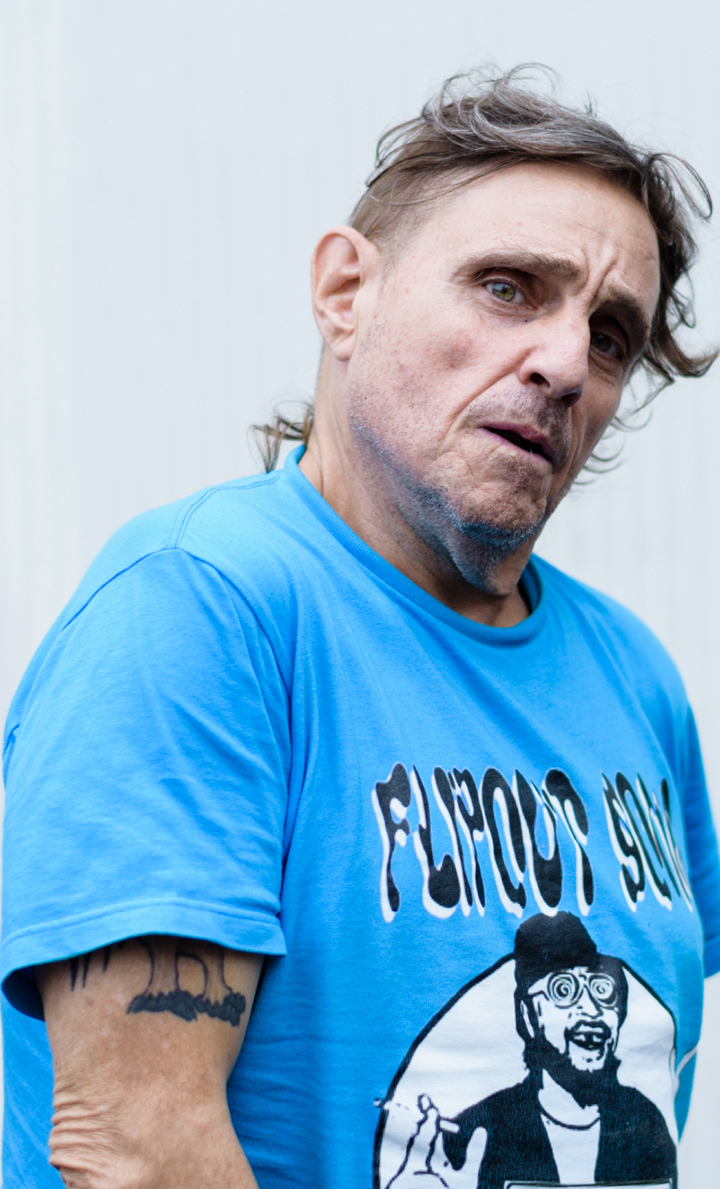
V: You released your memoir "MDC: Memoir from a Damaged Civilization" a couple years ago.
D: I'm very glad I put it out. I do book readings on the stage and all these older people came. There's these people that are fans of punk rock. They don't go to any music shows, but they go to book readings. I discovered them and I get to talk to them. It's another branch of being creative. Now we put out the book here, translated in Japanese. He did 1,000 or something like that. We've sold almost all of them. Which is really incredible, just to come on a 10 day tour and do that. In the states I've sold about 10,000. It's a new branch of me, and now I'm being invited to go to bookstores and talk. Go to universities. A writer for The Houston Press, he's invited me to a panel along with Jack Grisham of TSOL and Jello Biafra of the Dead Kennedy's. It's kind of nice, it's just it's another branch of creativity that I get to express and I feel very fortunate.
V: You spent your time in the '80s in San Francisco and fellow member of MDC, Ron Posner started Concrete Jungle. How was that connection with punk rock and skateboarding back in the day? Did you ever skate?
D: I skated, I was in that connection. We like skateboards. It was a natural thing and then all of the sudden it got very big and professionals started doing it and the kids that rode skateboards that were really good liked to listen to punk rock. Tony Hawk liked MDC.
V: Oh shit, really?
D: Yeah, yeah. He used our song in his video, we're in the Jackass TV show. Not the movie, the TV show. Grand Theft Auto 5 bought our song "John Wayne was a Nazi" to use for the video game. It sold 200 million copies. Two kids listening to it, that's 400 million young people. And of course to listen to our song you have to play the game and in there you have to go to a prostitute, have sex with her, then rob her, run into the street, drag someone out of the car, jump in the car, drive away the police are chasing you, and you turn on the radio, "John Wayne was a Nazi" comes on. I'm okay with it. People have said, "Don't you feel terrible? A working woman, a prostitute was abused and someone had their car stolen." I'm glad I'm in the culture somewhere (laughs).
V: Back in the '80s in SF, you had Maximum Rockandroll and Thrasher. Punk magazine and skate magazine.
D We were in both. We were in both. Maximum Rockandroll was a little closer to me because it was political. So they liked "Multi Death Corporation." Thrasher was like... they didn't say they liked the "Multi Death Corporation" but they liked our music.
V: They released a video called "A Blast from the Past and Present" that combines punk and skating.
D: I've never seen it before, but I know they put out a bunch of them and skaters like to listen to our music. They hate the cops. We sang "Dead Cops." They like skating to it, they imagine themselves skating away from the police and listening to songs about hating the police. They don't have it like, "Oh because politically the Multi Death Corporation is protected by the army, and the police." No, it's just that some cities have rules that say no skateboarding. If you have a skateboard, where are you going to skateboard if there's no skateboarding? They skate anyway. Then the police chase them. I've gotten to know a lot of skaters. I like skating a little. I fell down, I'm 60 years old. I'm not a big skater now. We have one in the van. We take one with us everywhere. I did a little skating on this trip. I don't try ollies anymore. I used to, you know spin around and do that one up.
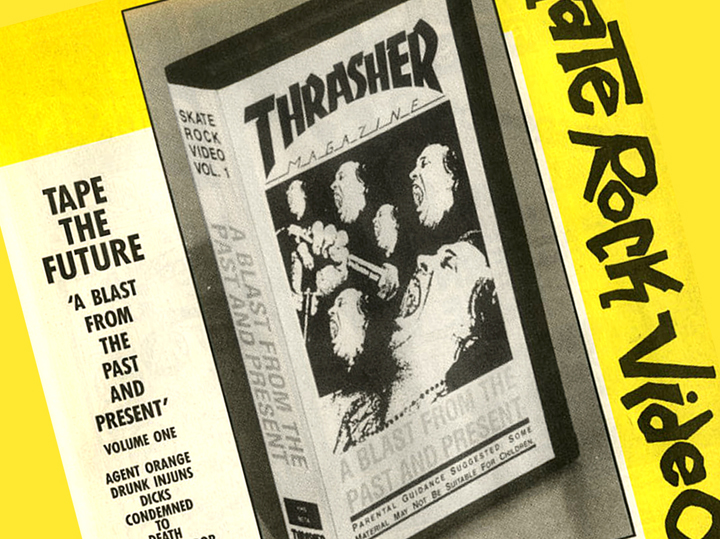
V: Was there a connection between MDC and Concrete Jungle back in the day?
D: Oh yeah there was a shop called Concrete Jungle and the guitar player of our band started it. It was a place that punks hung out and the skaters hung. That was another big connection. Ron left the band for a lot of years but then came back in 2003. He was in the band until about 2015. He's married with two kids. He drives bus for the Portland Metro. He's a great guy. He went down to this demonstration, there's a group called the Proud Boys. They're fascist fuckers. They're Nazis. They go around beating up people of color, gay people, anyone they don't like. 2000 people came out in Portland today and went to go meet where the Proud Boys were going to be. They didn't show up and the people were chanting, "No Proud Boys, no KKK, no fascist USA."
V: That comes from your song "Born to Die" and it turned into "No Trump, no KKK, no fascist USA."
D: I'm proud that people standing up to bad people and fascist, and the bad things that Trump say. He came on like he was a populist, he was going to change everything for the good. Ends up being for the billionaires. Very racial, very anti-gay, very anti-people. I'm just so proud that people have taken a song I did and use it for these purposes. Right there in the streets of my hometown Portland, Oregon people are standing up. Sometimes you go to these demonstrations 200 punks show up. The police are on the Proud Boy's side, they give them tips, they warn them. They're pro Trump. They really are fascist. That just happened today. "No Proud Boys, no KKK." My roommate Angie who sells our merch on the road in America wrote me and said, "Dave I was crying. I just couldn't believe, it was just so proud. 2000 people came out to just say no to them." The Proud Boys showed up, saw 2000 people and they drove away. That's what needs to happen. That's the only thing they respect. There's no talking it out. They don't want to talk about anything except whites only. Very racial, very hating. They're haters and they're traitors.
V: In 1983 you were involved with Rock Against Reagan. What irritates you about Reagan and Trump? What's the difference between the two?
D: You know, it's the same thing in a lot of ways. They want to go back to America that never was. They think of America that was so good and strong. And they really mean so white, and so many good opportunities where they had segregation in the south, and no gay rights, and no women's rights. They think of a simpler better time, it wasn't simpler or better. It was more racial, more hatred. Of course you can romanticize what was good. Maybe there was less crime or less this. It wasn't even really less crime. Crime was reported less. And Fox News and these perverted news outlets that aren't true and they're fake just play up all the bad. "Oh, immigrants are taking our jobs. There's a Mexican illegal immigrant killed someone." Statistically, white people are killing more people than migrants.
V: Wow.
D: In the law schools, when I graduated University of Texas, very few minorities, Mexicans or African Americans went to law school. I couldn't believe it. I showed up at some of my pre-law classes. There were all these white people here and then I find out the University of Texas is 95% white. Since then it's gotten better. I think it's 80% and now there are actually more women graduating university than men. White men who are so used to having so many advantages and privileges for so long, they want to go back to the good old days where there were no Asian people competing for computer jobs. There were no women competing for engineer jobs. Or whatever. Doctors. There are more women becoming doctors. Of course they're working hard. That's good. People should get what they work hard for. All those people that are just being hateful and spiteful and jealous are just that. They want a world where they are favored for being white. For being white. A lot of these people are violent. A lot of people have criminal past. Some of these people are involved with, are pedophiles. Some of the leaders have been busted and caught having sex with children. It's despicable. Yet they're crying for themselves. We have to stand up and just say we can't cave into these people, we can't let them take over the streets.
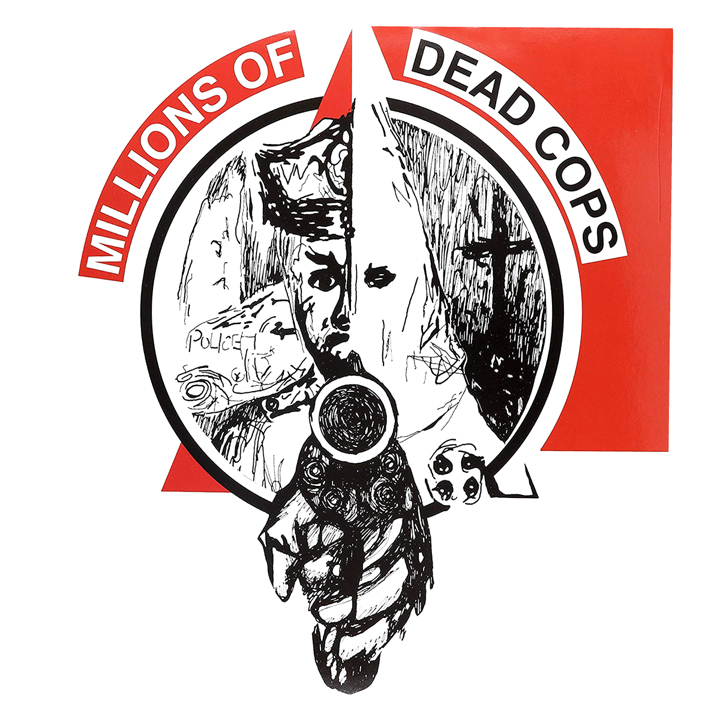
V: You've been spreading the message through music.
D: Our band is part of that. Because we have a political nature band because I don't want Fukushima Radio Chocolate Forever and Ever all over the place. That water, those Fukushima power plant leaking goes right on the gulf stream up around Alaska and on the shores of Oregon where I live there's radioactive waste. The fish in those waters are tainted. If our fishes are tainted, your fishes are tainted. The capitalist don't want us to think about that. They're like, "Think about sports. Sing about stupid stuff that's interesting, who kicks a soccer ball better, who swims, who climbs what mountains." That's interesting, but it's not interesting as the fishes are getting polluted with radioactivity.
V: That's pretty heavy.
D: What happened after the end of World War II, MacArthur came here in Japan and they promoted nuclear power plant. MacArthur was paid a lot of money to be on the board of directors of these nuclear power plants and they build 54 nuclear power plants all over Japan, right on the fault lines and they did it in the US, but not as much as here. Because they had a nation that was beaten in war so they could force it down their throats. Nobody wants to make that connection. I think we need to be aware of these connections because it's all... We're intertwined and interconnected and we don't want to build anymore nuclear power plants on earthquake fault zones because bad things can happen. That's just one of the things of the Multi Death Corporation. A big segment of the American economy is built on building tanks and machine guns, and airplanes, and wars, and torture equipment. They want to keep fear alive so they can keep selling tanks and weapons. They want you to stay fearful. "We got to keep these Japanese people out. We've got to keep these Chinese people over there. We got to keep these South American, these Mexicans in Mexico." They fill our brain with bad facts. Facts that are twisted to their favor.
V: You were teaching special ed, right?
D: I was a teacher for seven, eight years of my life. I taught in Portland, Oregon. I was teaching in New York when the World Trade Center blew up. I love teaching, I love punk rock even more. Teaching, there's no secret about teaching. You've got to love the kids. You got to give the friendship to the kids and care about who they are. As soon as they like you and trust you, you can tell them how to count, how to tell time, how to care about history, care what the name of that ocean is. Care about where England is, what the moon is, what the universe is about and build emotional IQ so they understand that this person might be frustrated about that. Instead of saying, "That guy's an asshole, I hate his guts," say, "He's pissed off because he doesn't have a father at home and he's just angry." We try to work emotionally to understand each other's strengths and their weaknesses. I worked with developmental disabled. I was in Nagoya and I saw the young man packaging. I could tell he was mentally retarded, developmentally disabled we say. It was so nice to see him. I saw him there. He was bagging my things and I was just talking with him. It was nice to see him functioning in this society. He may not be a rocket scientist, he may not be the singer of a punk band, he may not drive a taxi but he's helping people put food into their bags and handing it to them. For him to get there I know it took a lot of work. Because a lot of times when people have developmental disabilities, they have emotional problems, different things. My job was trying to train 12, 13, 14, 15 year old kids to be a bagger at the restaurant. I felt very connected to that bagger today. He bagged it and I said, "Good job."
V: You've been doing that literally your whole life. You have the passion to raise awareness and try to understand people through what you do.
D: Now I'm starting to learn how to make movies, because actually being a song writer is like a story teller. You tell a story, you tell a story of the Multi Death Corporation. Tell a story about these people that got in power, realized we can make a lot of money at war if we keep fear going on. We can sell guns to the Russians, to the Afghanistan, to the Iraqis, to the Chinese. If we keep fear going. I want to stop the fear. It's important to me.
V: What would you want to say to kids who face discrimination or sexist, or any of these kinds of negativity? How should kids approach that kind of stuff?
D: I'd say it's very hard and be very careful. I don't say stand up in the middle of 10,000 fascist and say, "Boo fascism, I hate you." Just be aware. Try to get with people that feel like you. I have a lot of gay people write me. We've been known. We do a song called "Dead Cops" and sang "What makes America so straight and me so bent?" It's in our first album. Gay kids writing me, they're 14 years old or 15 years old and they're like, "I'm trapped in this fucked up place and my mother and my dad are strict Christians and if I start talking about my sexuality, they want to send me to some camp where they brainwash you. What do I do?" I say, "Shut your mouth, you're 16 years old, get through til you're 18. Then when you're 18 you're a free human being. Then find the people."
V: That's a good advice.
D: My mom started writing a book and she said before she died, "I want you to finish it." It was called The Rainbow Butterfly. It's about this caterpillar that doesn't seem to fit in with everybody. He goes to where the tomatoes are, eats red tomatoes. He goes through all the colors of the rainbow and eats different food. He doesn't seem to fit with anybody. He goes down, he goes, "I'm going to go to sleep," and the caterpillar falls asleep. He metamorphoses as they say, he goes into cocoon and then he comes out and he's a rainbow butterfly. He comes out and he's got all these beautiful colors on, he's a rainbow. He goes, "Where are my people?" All of the sudden, he sees another rainbow butterfly. He goes up and he goes over, then he finds where his rainbow butterfly people are.
V: Great story.
D: That's what I tell these kids to do. Get through, have a nice long sleep, cocoon yourself so you're an adult. You're 18 years old and you can protect yourself legally and you can get out of wherever you are. These kids are in like Lynchburg, Virginia. A terrible place with the KKK and these right wing religious groups are there. I say just get through it. Then you come out to Los Angeles, to San Francisco, to New York where you'll find your butterflies. That's what I say to people. It's not the most satisfying answer because these kids are 15 and 16. They want to live life now. There's a lot of people that can hurt you and curb what you want. I'm very proud of the youth movement going on against global warming. They're coming out in the hundreds of thousands, going around everywhere, putting pressure on politicians. You're killing our future, you are destroying our future. It's like nobody can say anything to it. They have to listen. They say right now it's 125 degrees in India. The earth is on fire. It's got a fever and these kids are standing up for that. We're going to try to work with the kids. There's kids working against violence in schools. America, all these nuts have guns all over the place, because the gun makers want to sell guns and they want you to be afraid, so everyone needs a gun. We all go to school with guns. We all go to work with guns. We go to church with guns. It's a bad thing, it's a terrible thing. You don't need a society where every nut has a gun.
V: That's so different from Japan...
D: And there's a lot of different brain types you know? There are people don't have empathy and emotion, they're not able to be trained. Even in their brain it's just not there. They're unable to sympathize and just say, "Oh this person's having a hard time, look he's got crutches." They don't care. They step right over them, push them out of the way to get into the subway car. It exists and so we don't want to get those people to have guns.
V: With that said, what kind of place do you want this world to be?
D: I want it to be one big family where there's a human bill of rights. Where there's food, health, freedom, pursuit of happiness. Eleanor Roosevelt said it when she was working for the United Nations under Harry Truman and under her husband, that's the world I want. It's not a new idea. It's a world where egalitarianism, everyone gets a chance. I want an egalitarian world where no one is favored over anyone else because they're related to someone important, because they're the right color, the right religion, the right anything.
V: I see.
D: I see bands like Rebel Riot in Myanmar. Right now there's riots going on there between the Buddhist and the Muslim. There's more Buddhists and they're saying, "We have to stop this." They have to stop. It's like one of my favorite scenes in the movie with Gandhi where the Muslims and the Hindu are rioting against each other. They rioted so bad they started killing each other, and killing children. Then Gandhi started a fast. He was the hero of India. India used to be one place before it split into two. He said, "I'm not going to eat until the rioting stops." Finally after weeks, the rioting stopped. Some of the last people said, "What do I do? What do I do Gandhi? I've got the blood of children on my hands. I've killed children. I've killed their parents. I'm going to go to hell." He said, "No, there's a way out of hell for you. The way out of hell is you need to adopt a Muslim child." He said this to a Hindu man. "Adopt a Muslim child, raise him as a good Muslim and then when that man has grown up, you've worked your way out of hell and you can come back to heaven. You're not in hell forever." It was like, that's what this whole world needs to do.
V: World where there's peace.
D: The people who run the multi death corporate, they need to figure out that they've got blood on their hands. They need to come to themselves and understand that instead of making money off torture equipment and weapons and guns, I need to build fish hatcheries, I need to build water purification plants, I need to build shelters for everyone to have housing, I need to support hospitals where they train doctors. We need a one big family on this earth that looks out for each other. Then you can say, "I used to make these tanks that crawl over dead people, but now I am part of life and giving life to the human family. I worked my way out of hell and I can finally be a loving human being and I can finally look myself in the mirror and just say, 'I'm not perfect, I've had blemishes from the past, but I'm working hard.'"
V: Nothing is never too late.
D: I have a friend, he killed someone. He was a skinhead for years and he killed a woman. I said, "You have to work at a women's shelter for years and then you can come through this." He started working at a women's shelter and he talks to people about how he was raised, and how his father hit his mother. He was trained wrong but now he sees how fucked up it was, he's got blood on his hands, but he wants to save part of the human family. These women come up to him and hug him at the end of the meeting. They are so grateful even though he's done bad thing in his past that he is showing his... We call it contrition. It's showing respect and remorse and sorrow for hurting the people he's hurt. He's working against that happening to other women.
V: What I find interesting is that you have all these philosophy but you cross over to many different types of people.
D: I have a friend, he's one of the old SF Skins. He has a big swastika on his head... I saw him about four months ago, we played in a show in Tacoma, Washington and there's a lot of racial right wing, white kind of people there. He came up to me and I go, "You got the swastika?" He likes me because 35 years ago when he was 13, 14 years old, I worked in a sandwich store in San Francisco. At the end of the day all of these people would come to me and say, I'm hungry. I'd give them whatever we didn't sell. I'd make peanut butter sandwiches and hand it out to the skinheads, to all the kids. He came up to me and says, "I got the swastika on my neck, I can't really do anything about it, I want to change it but I don't believe in any of that white power bull shit, I'm trying to live my life, I got a kid. I'm just going through life..." Then at the show he was just there at the side of the stage and he's cheering, and it's like, that's what it's all about. We've got to help each other through. He was a street kid, he had a biker dad that used to burn cigarettes on him. He was raised with hate. Now, he wants to raise his kid with love. He goes to MDC shows, he's got a swastika and he's going to do something to it to make it into a snake. I want redemption. I communicate with all kinds of people and not just the pure people, not just everyone who's a monk or pure punk rocker. I have to communicate with everyone, because it's one big human family.
V: Right. That's what it's all about.
D: The communication, it's like if I can be that little piece of Gandhi that says there's a way out, there's a way out for you to change around bad shit that's happened with you, got to put love in your heart and you just got to start doing something positive. I mean, I don't want to live in a tribe of pure saints. I'm not a saint. I can poop myself as good as anybody and some days I work on the wrong side of the bed, "I'm blah, blah, blah." All of the things I feel sorry for me. Why isn't life better for me? Then I've got to catch myself and say, "Shut the fuck up. You've got a good life, there's food in your refrigerator, I've got love in my heart, I have a lover that loves me, stop crying and start giving." That's what we all have to do, is just remind ourselves. Because a lot of times we slip back into what we used to be. We slip back and I call it lower chakra. Some days I wake up, I'm thinking, "Save the universe," and other days I'm thinking, "Fuck everybody." I'm just tired of the universe, and I've got to remind myself, "I can't have a good time in the universe unless we put the Multi Death Corporations out of business and stop having a world that spends trillions of dollars on weapons and war, and death." That's where it is.
V: Right.
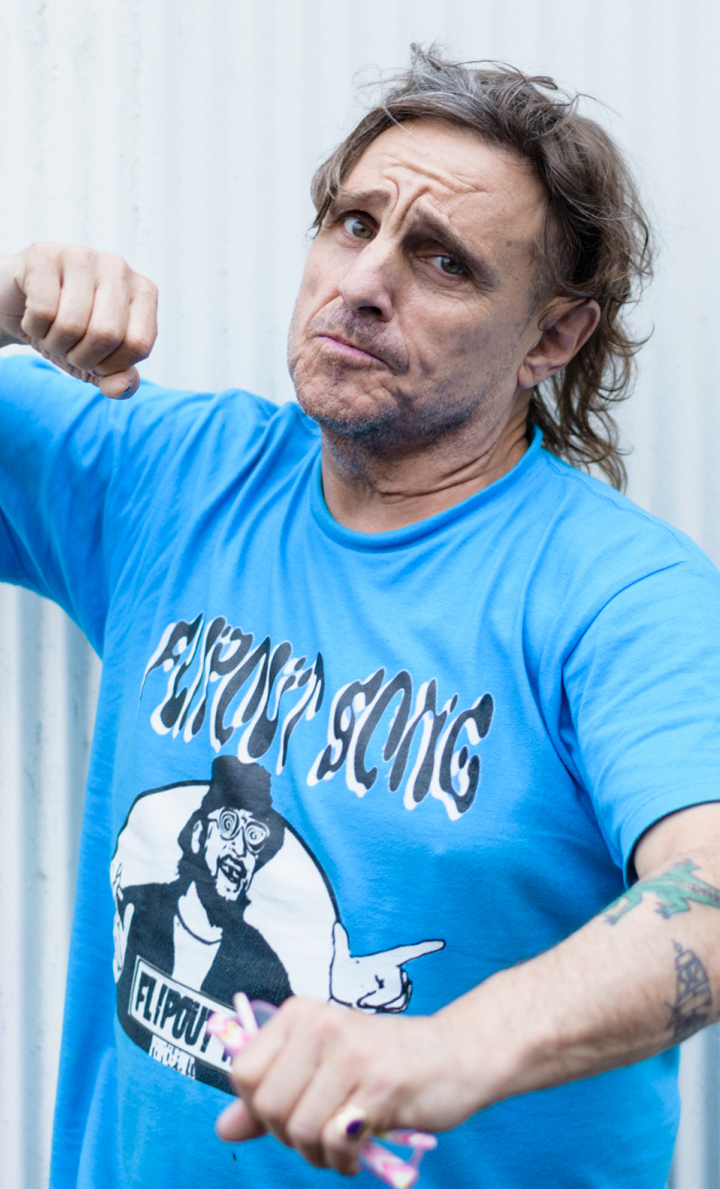
D: One of the best punk rock gigs I've done in the last three years, we played Bulgaria. They have a city called Sofia. It's a big fascist enclave. It's like all the old communist thing bred this whole right wing evil thing that's kind of like, all these old people are like communism is bad, socialism is bad, all the egalitarian and they want to make Bulgaria great again. They go around beating up gay people and we play the benefit for gay people. It was sponsored by the GLAAD (Gay and Lesbian Alliance Against Defamation). 300 kids came to the show and a lot of gay kids and girls were holding hands, and boys were holding hands, there were some trans people, there was all kinds of people there. We played the show and said good night. After the show I looked beyond the curtain they were all sitting there. They didn't want to go home. They had to risk their lives to go to that show. They were afraid the fascists were going to attack that show. I was told, "We have a car for you to get you out of there in case the fascists come in. We can smuggle you out." I'm like, "Holy shit." Fortunately it didn't happen, good things happened and the people stayed and they just sat. We just all kind of stayed there for like three hours after the show and just kind of hung... We got back up and played. I played acoustic, I played every song I know. I played "This land is your land," you know? I played the Woody Guthrie songs, I played every song I know. They just stayed there and then we hugged at the end of the night and now they're my Facebook friends and some of them stayed in touch with me. It was an important show.
V: That's beautiful.
D: A lot of times you play and the kids are wild, and they dance, and you sell a lot of shirts. That's cool. Because economics does make the world go round and it's nice to be able to go home, and have money, and to eat, and survive and treat your kid to this or that. It just reminded me just how important it is to reach out to everybody and not everyone has it as good as us. Japan is a wealthy place. You go to Indonesia, you go to Malaysia. I was in a house called the Ponte House in Jakarta and there was like... It was a room about the size of a van. Like nine people slept there every night. Four people slept in the day, and five people slept at night. They just, they took shifts. If you wanted to have sex with somebody you had to sign up and once a week you got the room for an hour and everyone said they'd be away. That's how they had to live economically. Nobody had their own room, their own bed. It was like they shared the space. Communally they did it and they were happy and they were smiling. They were thinking about feeding hungry people in Indonesia. They were worried about women being brutalized or raped or this and that. People who didn't have their own bed, they had to share a bed with other people who are worrying about other people. That's like Rebel Riot in Myanmar and other great bands. They care about other people. They don't have half as much as any of us. They don't have a tenth as much as me. I'm not very materialistic but still I have things. I've got a fancy pouch, I've got 40 dollar sneakers. I've got, FLIPOUT A.A T-shirt which I love. I have so many opportunities and advantages, yet they're happy and they're working to change the world.
V: What do you think about the unity of punk and skateboarding back in the '80s?
D: Well one of the things was, when we were all punk rockers in '78, '79, '80 you see another punk rocker walking down the street, I'd run across the street. He would run to me. What's your name? What's your three favorite bands? Then as we got a little more and more and it grew up, all of the sudden we started realizing we had all these big differences and there was less unity. The Misfit people were not like the Austin, Texas' Dicks fans and they weren't like the Social Distortion fans, and the Social Distortion fans weren't like the Chicago fans where The Effigies were from, or Agnostic Front in New York. We all started getting different. Some bands not so political. Don't talk to me about vegetarianism. Fuck that, I'm eating all the meat and we became separate. It happened in skating. First the skaters and the punks, we really had a lot in common. Then the skaters didn't want to hear about the political stuff so much. Their actions were a little more Jockey, kind of like sports people you know, kind of sexist and this and that. It's just kind of natural that that happens. I always try to break down the barriers and I still have a lot of friends that are skaters. I try not to like be so pious or I'm so important, or I'm better than you because I'm aware of sexism, or I eat less meat than you. I try to take every person for who and what they are in every situation. I found sometimes the pious punks can be full of themselves and egotistical and people that are skaters, the kind of guy that they'll give you their last quarter to a street person who says, "I'm hungry and I haven't eaten in two days." Then the political punk will walk by and go, I'm not giving money to that person. I hate those boundaries, so I try to squash them. I don't want to hang out with fascists, but I try to break down the walls all the time because I was very lucky. I had a loving mother, I was just in a certain way given freedom and if I didn't, if I lived a tougher life, I don't know how I would have turned out. I would have liked to think that I'd be an aware person that was generous and loving, but I don't know. You know? I was very lucky. I had a mom that loved me. Every night she said, "I love you." You get told that someone loves you 365 days a year, you start believing you're lovable. Not everyone has had that privilege. I try to tell people that sometimes that are hard to love, there are parts of them that I like. This is like my skinhead friend with a tattoo of a swastika on his neck. Later on at my show there were some nasty fascist guys that were protesting outside. He goes, "Dave, I got your back. Just so you know, I know who those fuckers are, anyone comes within 10 feet of you I will fucking, they'll be very sorry." I go, "Don't hurt anybody but thank you. It's good to know you've got my back." That's how I go through life. Nobody's perfect, nobody's a saint, I'm just trying to be good vibrations to pass onto the universe, I try to sing songs that matter and that will help people through whatever the challenges they have. You know? That's what we all got to do. We all got to walk our life and try to fit into the universe and we want a better world for our children. Try to figure stuff out where we can encourage people to be the best they can be. We're human beings and we're trying to make things better. There's other times I feel like global warming we're all going to be dead 20 years from now or less. I grew up in the nuclear age where Ronald Reagan was the president and I really didn't see myself standing in Tokyo in 2019. I just didn't see it at all in 1983 and '87. I couldn't envision that world. Talking about Rock against Reagan, it's the same as then, but the time is ticking out. There's less elephants and there's less beautiful things. And more, the time clock is ticking. Back then it was five minutes before 12, and now it's like 45 seconds before 12. My sense of urgency is more, but I can't be full time worried about everything because then I go crazy. I can't be thinking about elephants being slaughtered in Africa all the time, I'm not thinking about children starving in Somalia all the time. They're there, I know they're there, but I can't feel it full time or I can't get out of bed in the morning. I try to balance it all out. I'm just taking baby steps everyday with my little punk rock band. That's the life I have. I was a teach eight years, and that's all I can give is just try my hardest. I don't know what's going to happen, a meteor might hit, Godzilla might come out. I saw the big Godzilla in Tokyo, very nice on the building there. I just want to try for the human family.
Dave Dictor
Born in 1955 in NY, now resides in Portland Oregon. He's known as the lead vocal of American hardcore punk band MDC (Millions of Dead Cops). They have released more than eight albums and still plays in over 60 shows a year worldwide. Dave has appeared in documentary film "American Hardcore" released in 2006.
www.mdc-punk.com
www.facebook.com/mdcpunkbandofficial/
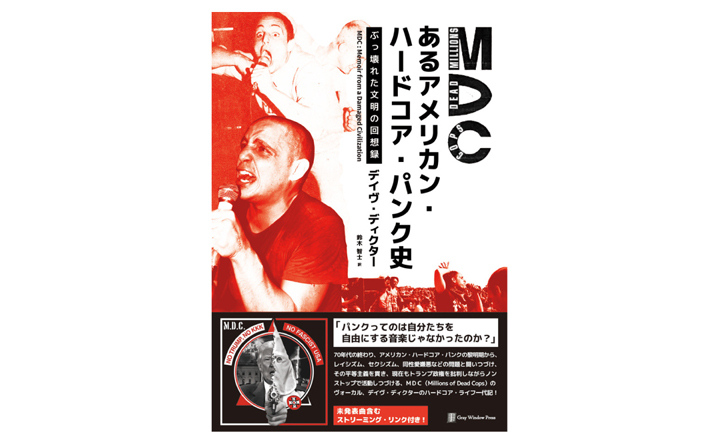
MDC: Memoir from a Damaged Civilization
Gray Window Press shop.graywindowpress.com/items/22496934
